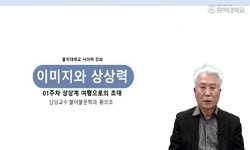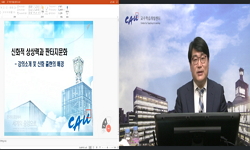Critics in the neoclassical period criticized Shakespeare’s use of degenerating expressions, vulgar words, bombasts and his excessive use of puns. Furthermore, they criticized Shakespeare’s violation of the three unities and his lack of moral inst...
http://chineseinput.net/에서 pinyin(병음)방식으로 중국어를 변환할 수 있습니다.
변환된 중국어를 복사하여 사용하시면 됩니다.
- 中文 을 입력하시려면 zhongwen을 입력하시고 space를누르시면됩니다.
- 北京 을 입력하시려면 beijing을 입력하시고 space를 누르시면 됩니다.
https://www.riss.kr/link?id=A100480745
- 저자
- 발행기관
- 학술지명
- 권호사항
-
발행연도
2014
-
작성언어
Korean
-
주제어
슐레겔 ; 낭만비평 ; 셰익스피어 ; 유기적 통일성 ; 상상력 ; Schlegel ; Romantic criticism ; Shakespeare ; organic unity ; imagination
-
등재정보
KCI등재
-
자료형태
학술저널
- 발행기관 URL
-
수록면
609-627(19쪽)
-
KCI 피인용횟수
1
- DOI식별코드
- 제공처
- 소장기관
-
0
상세조회 -
0
다운로드
부가정보
다국어 초록 (Multilingual Abstract)

Schlegel’s contribution to the understanding of Shakespeare’s originality lies in his theory of organic unity and imagination. In A Course of Lectures on Dramatic Art and Literature, Schlegel wrote: “Organical form ... is innate; it unfolds itself from within, and acquires its determination contemporaneously with the perfect development of the germ.... All genuine forms are organical.” Schlegel believed in the power of imagination which can combine many things into one large whole to produce dramatic unity. Schlegel praised Shakespeare’s genius in keeping organic unity in his works and his way of representing the ultimate end of human feeling. For Schlegel, the proof of Shakespeare’s genius is in the creation of various vital characters who mirror each other in an organic form.
Critics in the neoclassical period criticized Shakespeare’s use of degenerating expressions, vulgar words, bombasts and his excessive use of puns. Furthermore, they criticized Shakespeare’s violation of the three unities and his lack of moral instruction or poetic justice. Their views of Shakespeare were limited by neoclassical principles. August W. Schlegel, the representative German critic of Shakespeare in the romantic period, defended Shakespeare’s disregard of the three unities, pointing out the negative aspects of the esthetic of delusion as Samuel Johnson did. He also defended Shakespeare’s “mingled drama,” and his defence was based on his belief that it is a more natural form of drama to exhibit the real state of a real world.
Schlegel’s contribution to the understanding of Shakespeare’s originality lies in his theory of organic unity and imagination. In A Course of Lectures on Dramatic Art and Literature, Schlegel wrote: “Organical form ... is innate; it unfolds itself from within, and acquires its determination contemporaneously with the perfect development of the germ.... All genuine forms are organical.” Schlegel believed in the power of imagination which can combine many things into one large whole to produce dramatic unity. Schlegel praised Shakespeare’s genius in keeping organic unity in his works and his way of representing the ultimate end of human feeling. For Schlegel, the proof of Shakespeare’s genius is in the creation of various vital characters who mirror each other in an organic form.
참고문헌 (Reference)
1 김종환, "코울리지의 셰익스피어 비평" 한국셰익스피어학회 41 (41): 46-68, 2005
2 임한순, "독일의 셰익스피어 수용과 고전문학기 희곡의 발전" 1-30, 1996
3 Mack, Maynard, "The World of Hamlet" 41 : 502-523, 1952
4 Raysor, Thomas Middleton, "Shakespearean Criticism I, II" Dent 1960
5 Coleridge, Samuel Taylor, "Shakespearean Criticism I, II" Dent 1960
6 Lessing, Gotthold Ephraim, "Selected Prose Works of G. E. Lessing" George Bell and Sons 1890
7 Greene, Donald, "Samuel Johnson" Twayne Pub. 1989
8 Adler, J. H., "Johnson’s ‘He That Imagines This" 11 : 225-228, 1960
9 Johnson, Samuel, "Johnson on Shakespeare, The Yale edition of the works of Samuel Johnson, Vol. 7 & 8" Yale UP 1968
10 Voltaire, "Dramatic Theory and Criticism: Greek to Grotowski" Holt Rinehart and Winston 280-298, 1974
1 김종환, "코울리지의 셰익스피어 비평" 한국셰익스피어학회 41 (41): 46-68, 2005
2 임한순, "독일의 셰익스피어 수용과 고전문학기 희곡의 발전" 1-30, 1996
3 Mack, Maynard, "The World of Hamlet" 41 : 502-523, 1952
4 Raysor, Thomas Middleton, "Shakespearean Criticism I, II" Dent 1960
5 Coleridge, Samuel Taylor, "Shakespearean Criticism I, II" Dent 1960
6 Lessing, Gotthold Ephraim, "Selected Prose Works of G. E. Lessing" George Bell and Sons 1890
7 Greene, Donald, "Samuel Johnson" Twayne Pub. 1989
8 Adler, J. H., "Johnson’s ‘He That Imagines This" 11 : 225-228, 1960
9 Johnson, Samuel, "Johnson on Shakespeare, The Yale edition of the works of Samuel Johnson, Vol. 7 & 8" Yale UP 1968
10 Voltaire, "Dramatic Theory and Criticism: Greek to Grotowski" Holt Rinehart and Winston 280-298, 1974
11 Coleridge, Samuel Taylor, "Criticism: The Major Texts" Harcourt Brace Jovanovich 364-375, 1970
12 Bate, W. J., "Criticism: The Major Texts" Harcourt Brace Jovanovich 1970
13 Orsini, G. N. G., "Coleridge and Schlegel Reconsidered" 16 (16): 100-119, 1964
14 Wimsatt, William K. Jr, "Classical Criticism: A Short History" Routledge & Kegan Paul 1957
15 Hazlitt, William, "Characters of Shakespeare’s Plays" Oxford UP 1959
16 Eastman, Arthur M, "A Short History of Shakespearean Criticism" Norton 1974
17 Ralli, Augustus, "A History of Shakespearean Criticism. Vol. I" Humanities P 1965
18 Schlegel. August W, "A Course of Lectures on Dramatic Art and Literature" Ams P 1965
동일학술지(권/호) 다른 논문
-
- 한국셰익스피어학회
- 김미예(Miye Kim)
- 2014
- KCI등재
-
플라톤의 에로스 신화에 나타난 사랑의 상승구조와 기억 그리고 셰익스피어의 소네트 읽기
- 한국셰익스피어학회
- 이경옥(Kyung Ook Lee)
- 2014
- KCI등재
-
- 한국셰익스피어학회
- 이혜경(Hye Kyoung Lee)
- 2014
- KCI등재
-
- 한국셰익스피어학회
- 조영미(YoungMi Cho)
- 2014
- KCI등재
분석정보
인용정보 인용지수 설명보기
학술지 이력
| 연월일 | 이력구분 | 이력상세 | 등재구분 |
|---|---|---|---|
| 2027 | 평가예정 | 재인증평가 신청대상 (재인증) | |
| 2021-01-01 | 평가 | 등재학술지 유지 (재인증) |  |
| 2018-01-01 | 평가 | 등재학술지 유지 (등재유지) |  |
| 2015-01-01 | 평가 | 등재학술지 유지 (등재유지) |  |
| 2011-01-01 | 평가 | 등재학술지 유지 (등재유지) |  |
| 2009-01-01 | 평가 | 등재학술지 유지 (등재유지) |  |
| 2007-01-01 | 평가 | 등재학술지 유지 (등재유지) |  |
| 2004-01-01 | 평가 | 등재학술지 선정 (등재후보2차) |  |
| 2003-01-01 | 평가 | 등재후보 1차 PASS (등재후보1차) |  |
| 2002-01-01 | 평가 | 등재후보학술지 유지 (등재후보1차) |  |
| 1999-07-01 | 평가 | 등재후보학술지 선정 (신규평가) |  |
학술지 인용정보
| 기준연도 | WOS-KCI 통합IF(2년) | KCIF(2년) | KCIF(3년) |
|---|---|---|---|
| 2016 | 0.12 | 0.12 | 0.14 |
| KCIF(4년) | KCIF(5년) | 중심성지수(3년) | 즉시성지수 |
| 0.12 | 0.11 | 0.561 | 0.03 |




 KCI
KCI DBpia
DBpia







